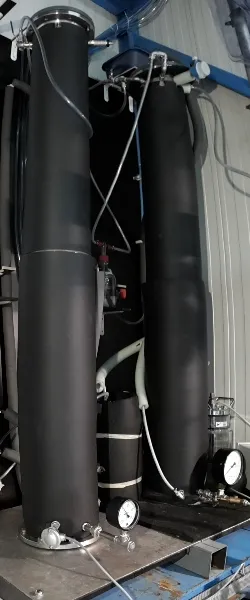With an increasing share of renewable energies from solar and wind in Germany, the challenges of ensuring an efficient and sustainable energy supply in line with demand are growing. To compensate for overproduction or deficits, available conversion and storage technologies (e.g. batteries, pumped storage power plants) can only be used as short or medium term storage facilities due to insufficient capacities. In contrast, the gas network is one of the largest and already available long-term storage facilities. Therefore, the project OptiMeth aims at investigating and further developing the microbiological production of methane directly from hydrogen and carbon dioxide ("microbial methanation"), whereby storable biomethane can be used for a demand-oriented supply of energy or, for example, as LNG or CNG for the mobility sector. While hydrogen is produced electrolytically in phases with excess electricity, carbon dioxide can be used directly at the point of origin (e.g. wastewater treatment or biogas plants, CHP, industry) and is not emitted as a greenhouse gas. The carbon is recycled and used only as a carrier for renewable energies (e.g. from wind power, photovoltaics). The implementation of microbial methanation can thus lead to reducing the consumption of fossil fuels, contributing to decarbonization and achieving climate protection goals. The possibility of making excess energy storable and providing energy when required is a decisive component of an efficient energy policy ("efficiency first"). As an efficient technology for biogas upgrading, it also opens up possibilities for the continued operation of existing biogas plants in the post-EEG era.
In the prior project MikMeth, microbial methanation has already been investigated and established in thermophilic trickle bed reactors in pilot scale. Trickle bed reactors represent a low-cost alternative to energy-intensive gas injection, which has so far been used in similar approaches for microbial methanation. The aim of the OptiMeth project is to further investigate microbial methanation in different process states in order to design and control it flexibly, robustly and as efficiently as possible and apply trickle bed reactors in various future energy conversion and storage scenarios. The Bavarian State Research Center for Agriculture as our project partner will investigate the microbial composition, focusing on enriching dominant species of hydrogenotrophic methanogenic archaea during long-term and intermittent operation as well as on micro and macro nutrient requirements.
